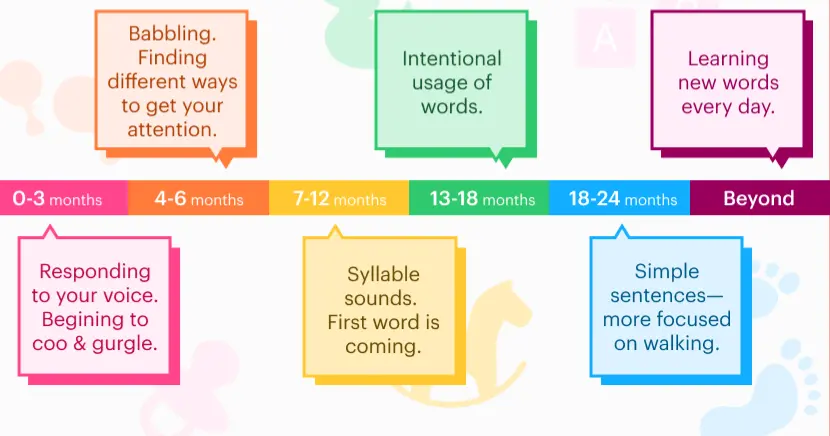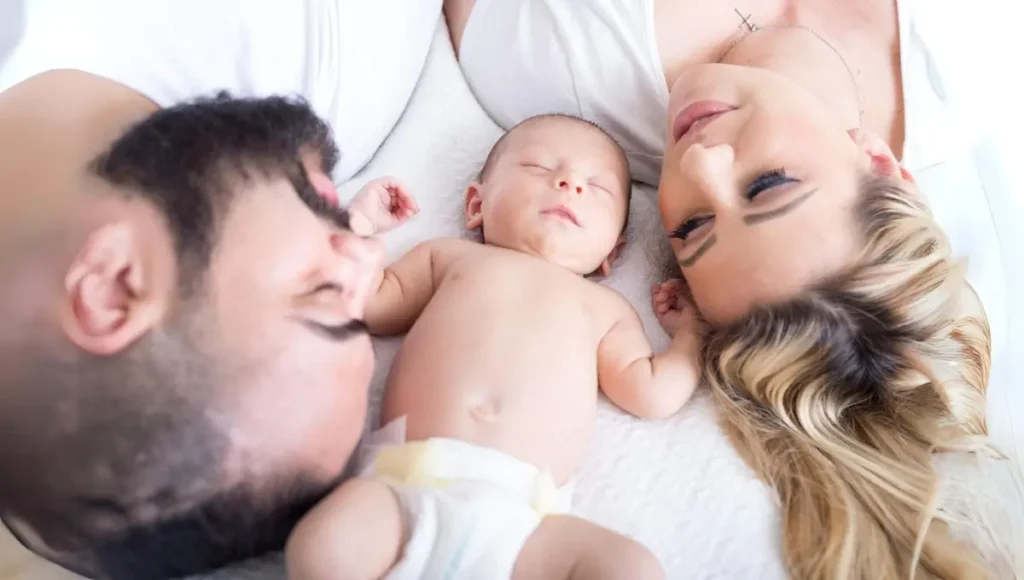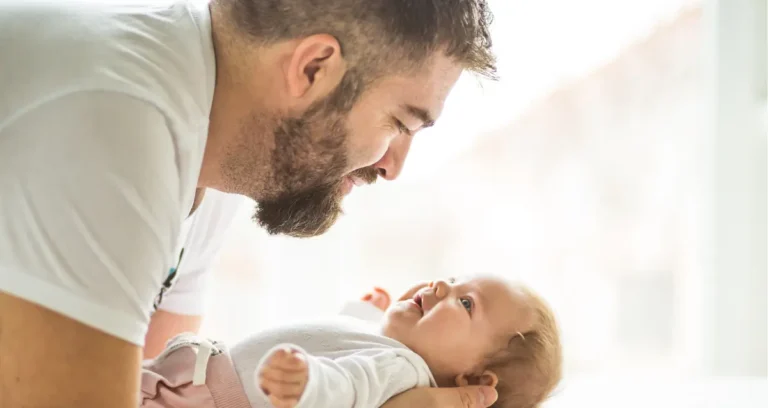As new parents, we eagerly await the moment when our little bundle of joy will start talking. It’s a milestone that brings a mix of excitement and anxiety. We wonder when our baby will utter their first words, and we may even compare their progress with other babies their age. But the truth is, every child’s development is unique and follows its own timeline. In this blog, we will delve into the topic of when babies begin to talk and understand the timeline of this crucial milestone.
It’s natural for parents to be curious about their child’s language development and when they will start talking. While some babies may start babbling as early as 4-6 months, others may take up to 18 months or more to say their first words. So what determines when a baby begins to talk? Let’s explore the various stages of language development in babies.
Pre-Speech Communication (0-12 months)
Before your baby starts talking, they will communicate through non-verbal cues such as crying, cooing, and gestures like pointing or waving. This is their way of expressing their needs and feelings. As they grow, they will also start imitating your facial expressions and sounds. These are all essential building blocks for speech development.
6-8 Months
Around this time, your baby will start responding to familiar sounds and voices. They may also begin babbling and stringing together sounds like “ba-ba” or “da-da.” This is an exciting stage as your baby is experimenting with the different sounds they can make with their mouth.
9-12 Months
Between 9-12 months, your baby will become more vocal and may even start imitating simple words or sounds that they hear frequently. They will also understand simple commands such as “wave goodbye” or “come here.” This is a crucial stage in their language development as they are building their vocabulary and understanding of language.
12-18 Months
This is the age when parents eagerly await their baby’s first words. It’s important to remember that every child is different, and some may not say their first words until they are closer to 18 months. However, if your baby is not saying any words or imitating sounds by 18 months, it may be a cause for concern and should be discussed with your pediatrician.
18-24 Months
At this stage, your baby will start adding more words to their vocabulary and may even start putting two words together to form simple sentences. They will also be able to understand more complex instructions and have a better grasp of language. This is an exciting time as your baby’s language skills continue to develop rapidly.
2-3 Years
Between the ages of 2-3, your child’s vocabulary will expand significantly, and they will be able to communicate in longer sentences and express their thoughts and feelings more clearly. They will also start using pronouns correctly, such as “I,” “you,” and “mine.” This is a major milestone as your child transitions from a toddler to a preschooler.

Factors That Affect Language Development
As mentioned earlier, every child develops at their own pace. However, certain factors can affect a baby’s language development:
- Genetics:
Some studies have shown that language development may have a genetic component. If there is a family history of speech or language delays, there is a higher chance of the child experiencing similar delays.
- Environment:
A stimulating environment can greatly impact a baby’s language development. Babies who are exposed to a variety of sounds, talking, and reading from an early age tend to have better language skills.
- Health:
Certain health conditions such as hearing impairments or developmental delays can affect a baby’s ability to talk. It’s essential to address any concerns with your pediatrician to ensure your child receives the necessary intervention.
- Bilingualism:
Growing up in a bilingual household can also affect a baby’s language development. It’s not uncommon for bilingual children to have a slight delay in speech as they navigate between two languages. However, they typically catch up by the time they reach preschool age.
Ways to Encourage Language Development
As parents, we play a crucial role in our child’s language development. Here are some tips on how you can encourage your baby’s language development:
- Talk and Read to Your Baby:
Even before your baby can understand words, they are absorbing and learning from the sounds around them. Talk to your baby often, narrate what you are doing, and read to them regularly. This will not only help build their vocabulary but also strengthen the bond between you and your baby.

- Respond to Your Baby’s Babbling:
Babies love to hear their own voices, and it’s their way of practicing sounds and communication. When your baby babbles, respond by repeating the sounds they make or imitating them. This will encourage them to continue making sounds and communicating.
- Use Gestures:
Pointing, waving, and other hand gestures are a great way for babies to communicate before they can speak. Encourage your baby to use these gestures, and respond by acknowledging and using the same gestures back.
- Be Patient:
It’s important to remember that every child develops at their own pace, and some may take longer to start talking than others. Be patient and avoid putting pressure on your child to speak before they are ready.
Conclusion
In conclusion, the timeline for when babies begin to talk may vary from child to child, but all babies go through similar stages of language development. As parents, we can support and encourage our child’s language skills through simple everyday interactions. Remember to enjoy this precious time with your little one, and before you know it, they will be talking up a storm!
Check out The Exciting Journey of a Baby’s First Steps.

